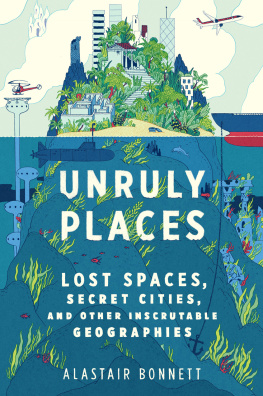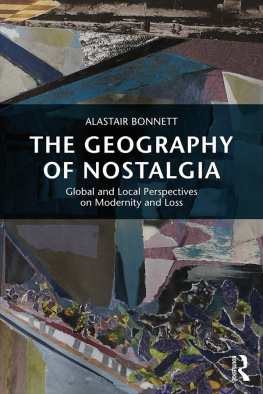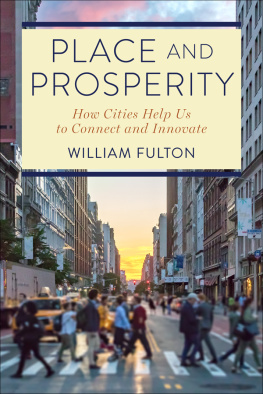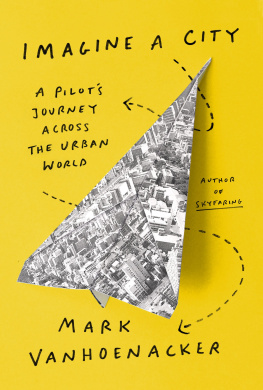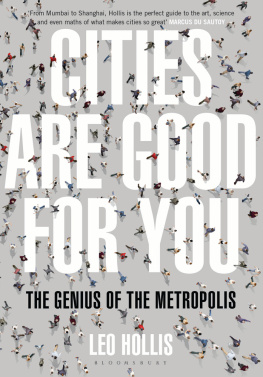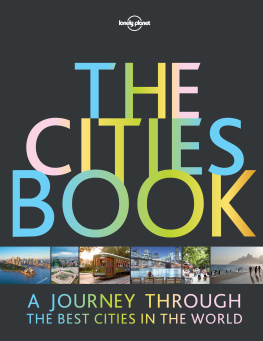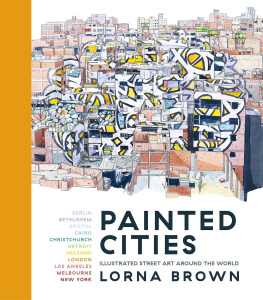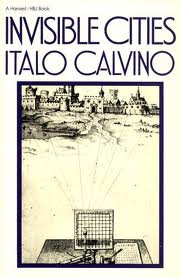First U.S. edition
Copyright 2014 by Alastair Bonnett
Illustrations copyright 2014 by Lauren Nassef
All rights reserved
For information about permission to reproduce selections from this book, write to Permissions, Houghton Mifflin Harcourt Publishing Company, 215 Park Avenue South, New York, New York 10003.
www.hmhco.com
First published in Great Britain in 2014 by Aurum Press
The Library of Congress has cataloged the print edition as follows:
Bonnett, Alastair, date.
Unruly places : lost spaces, secret cities, and other inscrutable geographies / Alastair Bonnett.
pages cm
ISBN 978-0-544-10157-9 (hardback)
1. GeographyMiscellanea. I. Title.
G 131. B 66 2014
910dc23
2013050983
e ISBN 978-0-544-10160-9
v1.0714
For Helen and Paul


Our fascination with remarkable places is as old as geography. Eratostheness Geographika, written around 200 B.C. , offers a tour of numerous famous cities and great rivers, while the seventeen volumes of Strabos Geography, written in the first years of the first century A.D. for Roman imperial administrators, provides an exhaustive compendium of journeys, cities, and destinations. My favorite of Strabos places are the gold mines of India, which, he tells us, are dug by ants no smaller than foxes that possess pelts like those of leopards. Although our appetite for curious tales from afar has been continuous, today our need for geographical reenchantment is of a different order.
I root my love of place in Epping. Its one of many commuter towns near London, pleasant enough but generic and placeless. Its where I was born and grew up. As I used to rattle out to Epping on the Central Line or drive there along Londons orbital motorway, I often felt as if I were traveling from nowhere to nowhere. Moving through landscapes that once meant something, perhaps an awful lot, but have been reduced to spaces of transit where everything is temporary and everyone is just passing through, gave me a sense of unease and a hunger for places that matter.
You dont have to walk far into our coagulated roadscape to realize that, over the past one hundred years or so and across the world, we have become much better at destroying places than building them. The titles of a clutch of recent books, such as Paul Kingsnorths Real England, Marc Augs Non-Places, and James Kunstlers The Geography of Nowhere, indicate an emergent anxiety. These authors are tapping into a widespread feeling that the replacement of unique and distinct places by generic blandscapes is severing us from something important. One of the worlds most eminent thinkers on place, Edward Casey, a professor of philosophy at Stony Brook University, argues that the encroachment of an indifferent sameness-of-place on a global scale is eating away at our sense of self and makes the human subject long for a diversity of places. Casey casts a skeptical eye over the intellectual drift away from thinking about place. In ancient and medieval thought place was often center stage, the ground and context for everything else. Aristotle thought place should take precedence of all other things because place gives order to the world. Casey tells us that Aristotle claimed that place gives bountiful aegisactive protective supportto what it locates. But the universalist pretensions of first, monotheistic religion, and then the Enlightenment, conspired to represent place as parochial, as a prosaic footnote when compared to their grand but abstract visions of global oneness. Most modern intellectuals and scientists have hardly any interest in place, for they consider their theories to be applicable everywhere. Place was demoted and displaced, a process that was helped on its way by the rise of its slightly pompous and suitably abstract geographical rival, the idea of space. Space sounds modern in a way place doesnt: it evokes mobility and the absence of restrictions; it promises empty landscapes filled with promise. When confronted with the filled-in busyness and oddity of place, the reaction of modern societies has been to straighten and rationalize, to prioritize connections and erase obstacles, to overcome place with space.
In his philosophical history The Fate of Place Casey charts a growing disdain for the genus loci: indifference to the specialness of place. We all live with the results. Most of us can see them outside the window. In a hypermobile world, a love of place can easily be cast as pass, even reactionary. When human fulfillment is measured out in air miles and when even geographers subscribe to the idea, as expressed by Professor William J. Mitchell of MIT, that communities increasingly find their common ground in cyberspace rather than terra firma, wanting to think about place can seem a little perverse. Yet placelessness is neither intellectually nor emotionally satisfying. Sir Thomas Mores Greek neologism utopia may translate as no place, but a placeless world is a dystopian prospect.
Place is a protean and fundamental aspect of what it is to be human. We are a place-making and place-loving species. The renowned evolutionary biologist Edward O. Wilson talks about the innate and biologically necessary human love of living things as biophilia. He suggests that biophilia both connects us together as a species and bonds us to the rest of nature. I would argue that there is an unjustly ignored and equally important geographical equivalent, topophilia, or love of place. The word was coined by the Chinese-American geographer Yi-Fu Tuan about the same time as Wilson introduced biophilia, and its pursuit is at the heart of this book.
There is another theme that threads its way throughout the places corralled herethe need to escape. This urge is more widespread today than at any point in the past: since fantastic vacation destinations and lifestyles are constantly dangled before us, its no surprise so many feel dissatisfied with their daily routine. The rise of placelessness, on top of the sense that the whole planet is now minutely known and surveilled, has given this dissatisfaction a radical edge, creating an appetite to find places that are off the map and that are somehow secret, or at least have the power to surprise us.
When describing the village of Ishmaels native ally and friend, Queequeg, in Moby-Dick, Herman Melville wrote, It is not down in any map; true places never are. Its an odd thing to say, but I think it makes immediate, instinctual sense. It touches on a suspicion that lies just beneath the rational surface of civilization. When the world has been fully codified and collated, when ambivalences and ambiguities have been so sponged away that we know exactly and objectively where everything is and what it is called, a sense of loss arises. The claim to completeness causes us to mourn the possibility of exploration and muse endlessly on the hope of novelty and escape. It is within this context that the unnamed and discarded placesboth far away and those that we pass by every daytake on a romantic aura. In a fully discovered world exploration does not stop; it just has to be reinvented.
In the early 1990s I got involved with one of the more outr forms of this reinvention, known as psychogeography. Most of the time this involved either drifting in search of what some of my comrades fondly imagined were occult energies or purposely getting lost by using a map of one place to navigate oneself around another. To wander through a day care center in Newcastle while clutching a map of the Berlin subway is genuinely disorienting. In so doing, we thought we were terribly bold, but in hindsight what strikes me about the yearning to radically rediscover the landscape around us is just how ordinary it is. The need for reenchantment is something we all share.
Next page
